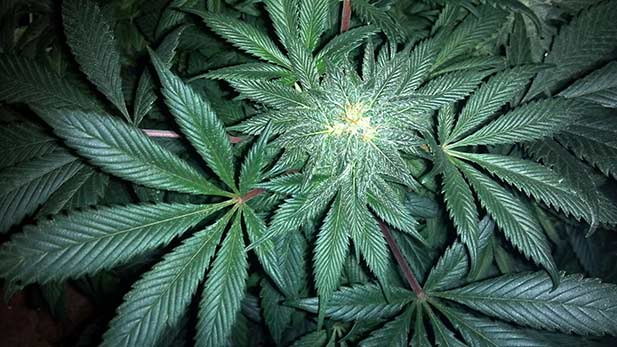 A marijuana plant
A marijuana plant
Listen
More than a half dozen marijuana-related ballot initiatives to legalize marijuana have been filed with the Secretary of State’s office. Supporters of the initiatives have the next 13 months to collect more than 150,000 signatures to put the issues on the state ballot in November 2016.
One group, the Campaign to Regulate Marijuana Like Alcohol, claims they have the best chance.
“It’s a mixture of evidence. It’s a mixture of having millennials grow up and get jobs and be part of the conversation," said Carlos Alfaro, the group's Arizona Political Director. "It’s also the older generation that’s seen marijuana prohibition fail for so long that they know we need to have a new approach.”
Their proposal, the Regulation and Taxation of Marijuana Act, sets the legal age for marijuana use at 21 and puts a 15 percent tax on retail cannabis sales, with the money going toward public health and education.
Alaska became the fourth state to legalize marijuana for recreational use late last year, following Washington, Oregon and Colorado. Marijuana is also legal in the District of Columbia. Cannabis was approved for medical use in Arizona in 2011.
In Arizona, opponents of allowing recreational use say it’s not the right path for the state.
Seth Leibsohn is chairman of Arizonans for Responsible Drug Policy, and he said regulating it and taxing it like alcohol is a losing argument.
“The state takes in about $70 million in revenue a year from alcohol," Leibsohn says. "But what does the state spend on treatment, and the fallout from alcohol abuse? Tens upon tens upon tens of million of dollars more. It’s a total net loss.”
Alfaro, the legalization advocate, said 80 percent of the revenue generated from the sale of marijuana would help Arizona build new schools, and provide teachers with the salaries they deserve.
“A lot of people have been talking about education funding and trying to find more dollars for the classroom," he said. "This initiative will be almost like Colorado’s. They have a $700 million marijuana market, bringing in almost $60 million in revenue for public education and public health.”
Leibsohn said the states approving recreational use did so with limits.
“They know marijuana is a dangerous product, because their legislation allows for the possession of one ounce," Leibsohn said. "They want to say it’s going to be like alcohol. It’s not. The legislation does not create a system where you can buy marijuana at gas stations and service stations and Circle Ks, no.”
Leibsohn said he expects the voters will get a chance to decide if they want legalization.
"We will push back, and we will remind people of the old line from ‘Gone With The Wind.’ ‘It’s just as easy to destroy society as it is to build one up,’" Leibsohn said. "When you look at what marijuana use does to the dropout rate, to the teen mind, to academic outcomes, to children’s health, this is nothing that this state would want, and it’s nothing our nation would want.“
Alfaro said in states that have regulated recreational marijuana usage, use by teens has gone down.
"That’s the big challenge for the opposition, asking how are we going to make them so scared that they won’t notice what’s going on around the country." Alfaro said. "That’s why they’re going to fail and that’s why it’s only a matter of time before this whole country legalizes marijuana.”
Among the other proposed ballot initiatives is one asking for the regulation and cultivation of industrial hemp by people registered by the state. Another calls for the re-legalization of all drugs, including marijuana, heroin, cocaine and LSD; along with a pardon for anyone convicted of committing a drug offense.
Backers of all proposed measures have until July 2016 to gather the required number of signatures to qualify for the ballot.

By submitting your comments, you hereby give AZPM the right to post your comments and potentially use them in any other form of media operated by this institution.